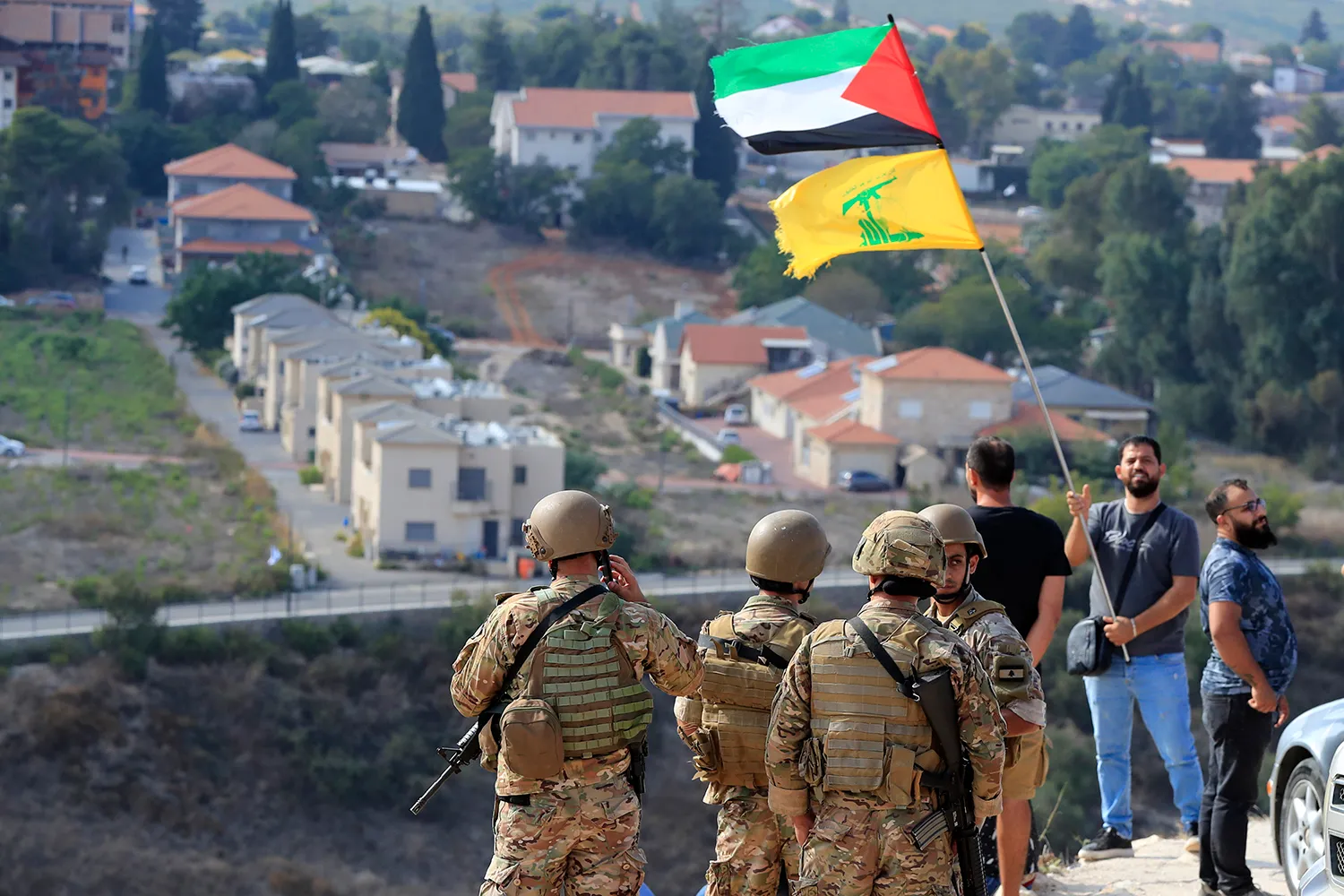It’s been almost two months since Hezbollah began engaging in clashes with the Israeli occupation on October 8, in an attempt to aid Hamas in its resistance against the occupation.
The ongoing events in Gaza have engulfed Lebanon, and specifically people residing in southern areas of the country, in the conflict. Except for a brief ceasefire and sporadic instances of calm, residents of South Lebanon have been subject to intense bombing campaigns, gunfire, repeated shelling, white phosphorus munitions and different sorts of attacks by Israeli forces.
Public opinion in Lebanon remains highly polarized, between those looking to avoid an all-out war and looking to keep the country away from current escalations, and those advocating further military support for Palestinian factions and allies.
Many have accused Hezbollah of “dragging” Lebanon into the conflict, especially those with a history of enmity with the group – namely, the Lebanese Forces.
More recently, the debate has revolved around the responsibility for compensating for residents of the south who were affected during the conflict, many of whom have incurred direct casualties, lost someone close to them, or suffered from property damages. The debate has also branched out to discuss who will be responsible for compensating the loss of public properties and farmland across the area. Compensation Already Under Way
Member of Hezbollah’s Loyalty to the Resistance Bloc MP Hassan Fadlallah announced last week that the party has begun compensating people affected by Israeli bombing in the south.
While stating that the group is providing “cash, capacities and efforts” for those affected, he also asserted that this doesn’t absolve public institutions of their responsibility to assess damages and to compensate people.
The Council of the South began, on the first day of the ceasefire, to assess damages to public properties, infrastructure and private properties, and is set to conclude its assessment on Tuesday, December 4. The amount that the Council would pay for compensation has been estimated at LBP 1,000 billion, i.e. around $USD 10 million according to local sources.
While it’s still unclear whether the compensation would include indirect damage such as that done to workshops, agricultural fields, and farms, Fadlallah asserted that 80 percent of those affected are supporters of Hezbollah and that the damage is not as exhaustive as that of the 2006 war and thus remains repairable.
The Government’s Response
On his part, Prime Minister in the caretaker Government Najib Mikati announced that the government will issue an official mandate to relief agencies to assess property and infrastructural damage in the south.
Following a meeting with Mikati, Fadlallah adds that the Prime Minister expressed the government’s readiness to pay for the reconstruction of dozens of damaged houses in the south.
The Lebanese Forces’ Position
Leader of the Lebanese Forces party, Samir Geagea, criticized the government’s intention to compensate for affected people in the south. He stressed that it is not adequate to pay such costs from taxpayers’ money after the majority of the Lebanese people were against opening the southern front.
“The ten million dollars promised by the government to compensate for damages caused by missile and artillery exchange between Hezbollah and Israel should be paid by the ministers who voted for this decision, from their own pockets,” Geagea expressed in a statement last Thursday.
The Lebanese Forces and various of its representatives have repeatedly stated that Lebanon cannot tolerate a war and have publicly condemned Hezbollah for its ongoing operations in the south of the country.
The Country Continues to be Divided
Many political parties are yet to take a direct decision on the recent developments, or issue official statements.
The Amal Movement and the Lebanese Communist Party have both participated in operational efforts, with the former losing one of its members. Ex-leader of the Progressive Socialist Party Walid Jumblatt expressed his support for “resistance” efforts during the early days of the conflict.
Meanwhile, pro-change MPs and groups remain divided on the issue, with a front represented by MPs Waddah Sadek, Michel Douaihy and Mark Daou calling for the avoidance of an all-out war, while others issuing sporadic positions on the escalations.
Such a divided political situation is quintessentialized by Lebanon’s vacant presidential seat and more recently the debate on extending the term of Lebanese Army Commander-in-Chief Joseph Aoun.
With the fighting and ongoing onslaught resuming after the ceasefire, people in south Lebanon continue to endure the conflict and the socioeconomic crisis leaderless, lacking any sense of strategic direction.


